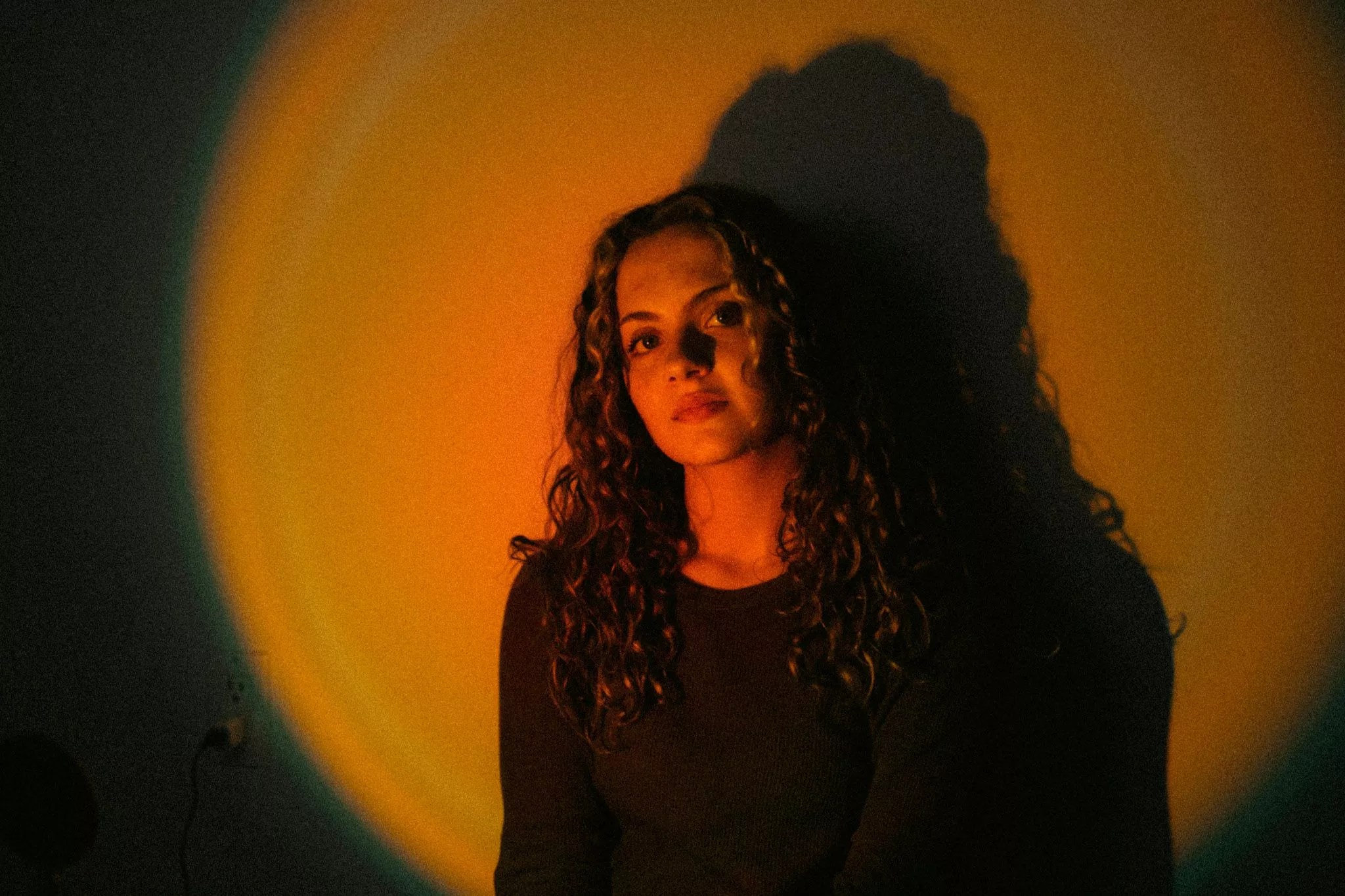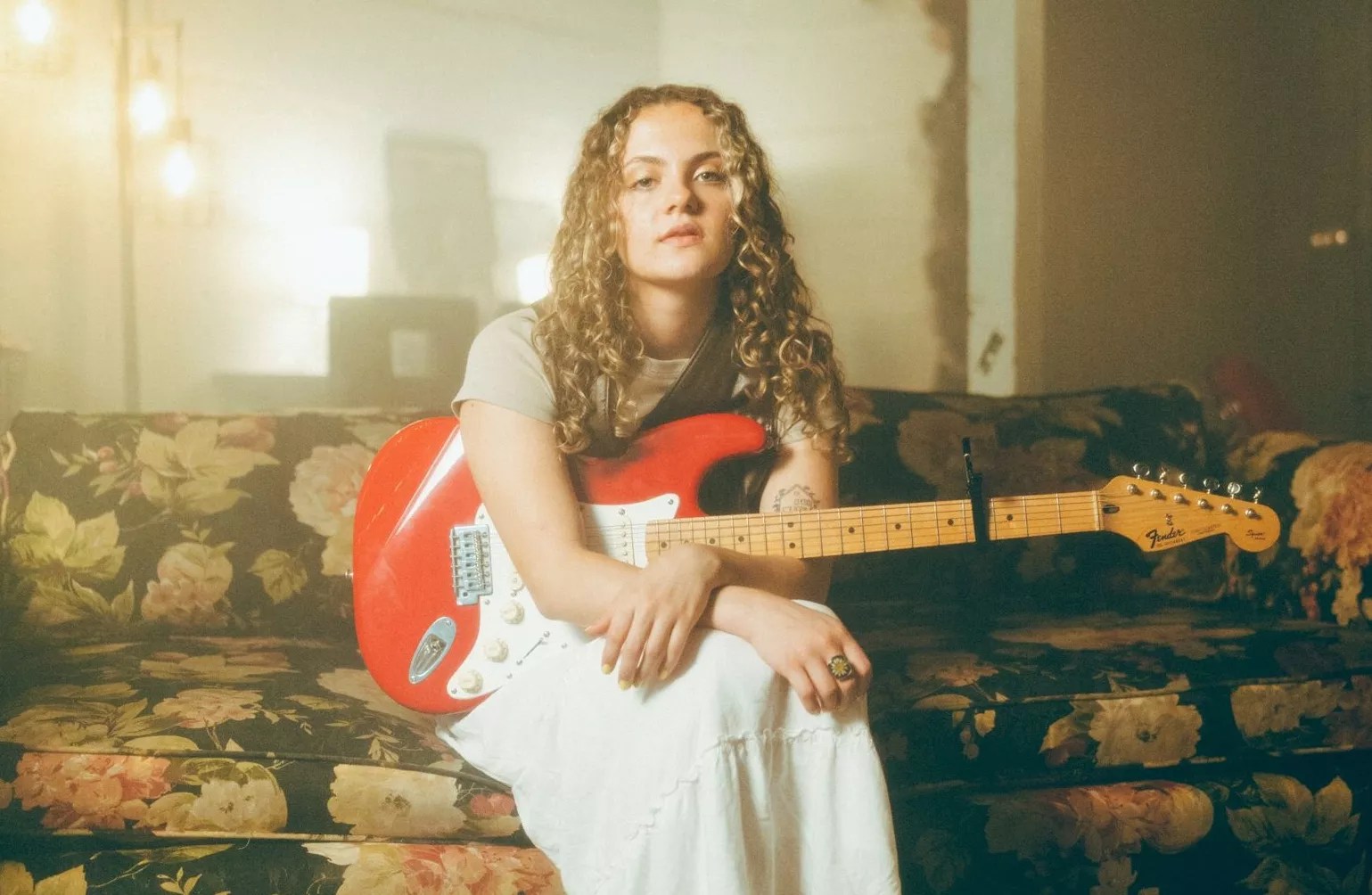
Morgan Morgan

Audio By Carbonatix
Izzy Mahoubi has often felt stuck.
At just 18 years old, the singer-songwriter is still very much at the beginning of her career.
“I’m not in music school. I’m not in college,” she says. “I’m just writing songs and doing it every day and developing with the craft as I’m getting older.”
Yet at the same time, she’s also something of an old pro.
“When I was 11, I started playing guitar, and my voice teacher quickly encouraged me to start writing songs,” she says. “I’ve played at every coffee shop and restaurant in the state of Arizona.”
It’s a situation that often had her feeling unsure about the future.
“I was kind of going back and forth,” Mahoubi says of the last few years. “Do I want to go to Nashville and write songs, or do I want to be in the business side? What do I want to do?”
She adds, “I still feel like I’m at the beginning. Like, they haven’t even pulled the gun and I’m still at the beginning of the race. But at the same time, I also feel like I’ve lived a lot of lives and made a lot of mistakes.”
One thing that’s not a mistake: the release of “How to Run,” her debut EP, on July 21 on Rude Records.
Mahoubi, like many artists, were presented with something of a transformative opportunity amid COVID.
“As people, we always live in the next 10 million steps ahead of where we’re at right now,” she says. “I was turning 15 or 16 when COVID happened. I was very much like, ‘I’m going to Berklee and I’m going to do this and release an album when I’m 16.’ Obviously, I’ve done none of that.”
During the last few years, she’s had heaps of time for self-evaluation while also playing the “awkward live streams and [having] a lot of presence” online.
“I needed that in my career,” she says. “To be like, ‘OK, so I’m actually a child and I don’t know what’s going on. I need to just sit down and figure things out.'”
Fortunately, she had some help during this period.
“I read this book by Patti Smith called ‘Just Kids.’ It literally changed my life,” Mahoubi says. “She’s one of those artists where she just loved her craft; it didn’t matter if she made it or had commercial success or fame or anything, and I think that is the most inspiring.”
While Mahoubi isn’t a fan of Smith’s music per se (she grew up on Fiona Apple, Taylor Swift and Paul McCartney), the iconic singer and others provide ample lessons for young creators like herself.
“I think that’s the reason why people like her and Stevie Nicks and just the groundwork of women and men who made decisions that were completely, unapologetically themselves,” Mahoubi says. “Like, I hate to say that, but it was just so unique for the time that people now just try to replicate.”
Mahoubi, who also regularly writes poetry to supplement and extend her songwriting, also found guidance in a celebrated author.
“There’s this quote from John Steinbeck, ‘And now that you don’t have to be perfect, you can be good,'” she says. “It’s all about your perspective. Like, why am I creating this? Why am I doing this?”

‘How to Run’ will be Mahoubi’s debut EP.
Chase Warren
All of this introspection has helped Mahoubi in a few different ways. For one, she’s learned that not being perfect means you only have to make yourself happy.
“It only happened in, like, the past six months,” she says. “Everything before had been about being a people pleaser.”
Because, Mahoubi believes, being imperfect opens her up to all new ideas and influences.
“I feel like I’ve made every single mistake and have learned completely by making mistakes and getting a couple of things right along the way,” she says. “I became more at peace with being messy and being unconventional. I tell myself, ‘I’m not going to write a pop song today. I’m not going to write a No. 1 hit today. I’m not going to write something that’s going to do well on TikTok.’ Then I start writing parts that I feel like have a lasting novelty instead of something trendy.”
She’s also found space for work that’s decidedly removed from the modern music industry and its obsession with metrics and viral moments.
“It’s really hard in a saturated time of just copy-and-paste music,” she says. “Growing up in an age that is primarily based on numbers on TikTok or Spotify, you think that’s the end goal. It can be so discouraging to see somebody post a seven-second video of them frolicking in the woods with their [song] and it gets 3 million likes. Then [you] do the same thing and it gets two views.”
So she had to tell herself, again and again, that she’s interested in so much more than what a moment in the spotlight might have to offer.
“I’m at a point where I’ve realized I’m either going to make music that’s going do well on TikTok and I’m going to be trendy and write stuff I think people want to hear, or I’m going make 100 mistakes that can be completely messy and whatever,” she says. “You have to choose: ‘This is what I’m going to do because I love it because I’m not perfect and I’m learning.’ That’s what art is.”
She says she’s done “trying to fit in the box of cool underground singer-songwriter girl that blows up on social media. Like, I just can’t do that.” But that doesn’t mean she still might not achieve that success. Especially if “How to Run“ gets into enough people’s hands.
The first two cuts of the four-track effort certainly set the stage. “Torn in Two” is a slow-burning, ultra-earnest ballad that splits the difference between Phoebe Bridgers and Sheryl Crow. Meanwhile, “Cool Guy” is a more bitter alt-pop ballad showcasing Mahoubi’s songwriting chops and wit.
“Somebody asked me to describe [the EP] in one word and I said, ‘eclectic,’ Mahoubi says. “I wanted it to feel like you’re walking into [my] life. Like, I finished this in my senior year and I wanted it to say, ‘OK, I’m walking out of my childhood bedroom and I’m going to college and there’s posters on the wall and these memories of when I was really into this band or this guy.'”
But it’s not just about recent-day nostalgia or throwing stuff against the wall to see what sticks.
“The end goal for me is just to create the most authentic and messy music that’s just right,” Mahoubi says. “So whatever stems from that, I have to let go of my pride and say, ‘Yeah, that’s what it’s going to be.'”
She’s especially excited for the EP’s title track. It speaks to ideas that are essential to Mahoubi as she further develops as both a person and an artist.
“I saw this sign in the Melrose [District] that said, ‘Silence is the violence.’ And the ‘How to Run’ chorus is about that,” Mahoubi says.
She adds, “We stay quiet for other people to make themselves louder and taller and more important. I think once you learn how to accept your voice, and who you are and the space you take up, there’s literally nothing stopping you. That’s what the EP means to me.”
Beyond the EP’s July 21 release (plus, an acoustic version of “How to Run” in August), Mahoubi wants to play more live shows – she’s only recently played gigs outside coffee shops and thinks it’s a chance to develop as a performer – albeit fully aligned with her “messy is great” mantra.
“I had to learn how to make that space my practice room while engaging the crowd and having it be so everyone’s friends in that room,” she says of performing. “I’m very awkward on stage but I love it. I try to talk to people and there’s a great energy and it’s just very welcoming. I try not to take things seriously.”
She also just released a cover with fellow on-the-rise Phoenix singer-songwriter Sydney Sprague of Joni Mitchell’s “Big Yellow Taxi.”
Beyond that, it’ll be more time spent writing songs as she gears up for a future full-length. She may still be sorting it all out personally and professionally, but Mahoubi is excited for the next few years. Because after all the hard work and uncertainty, she can finally see it all coming together.
“This is my ‘track race gun getting fired’ moment,” she says.